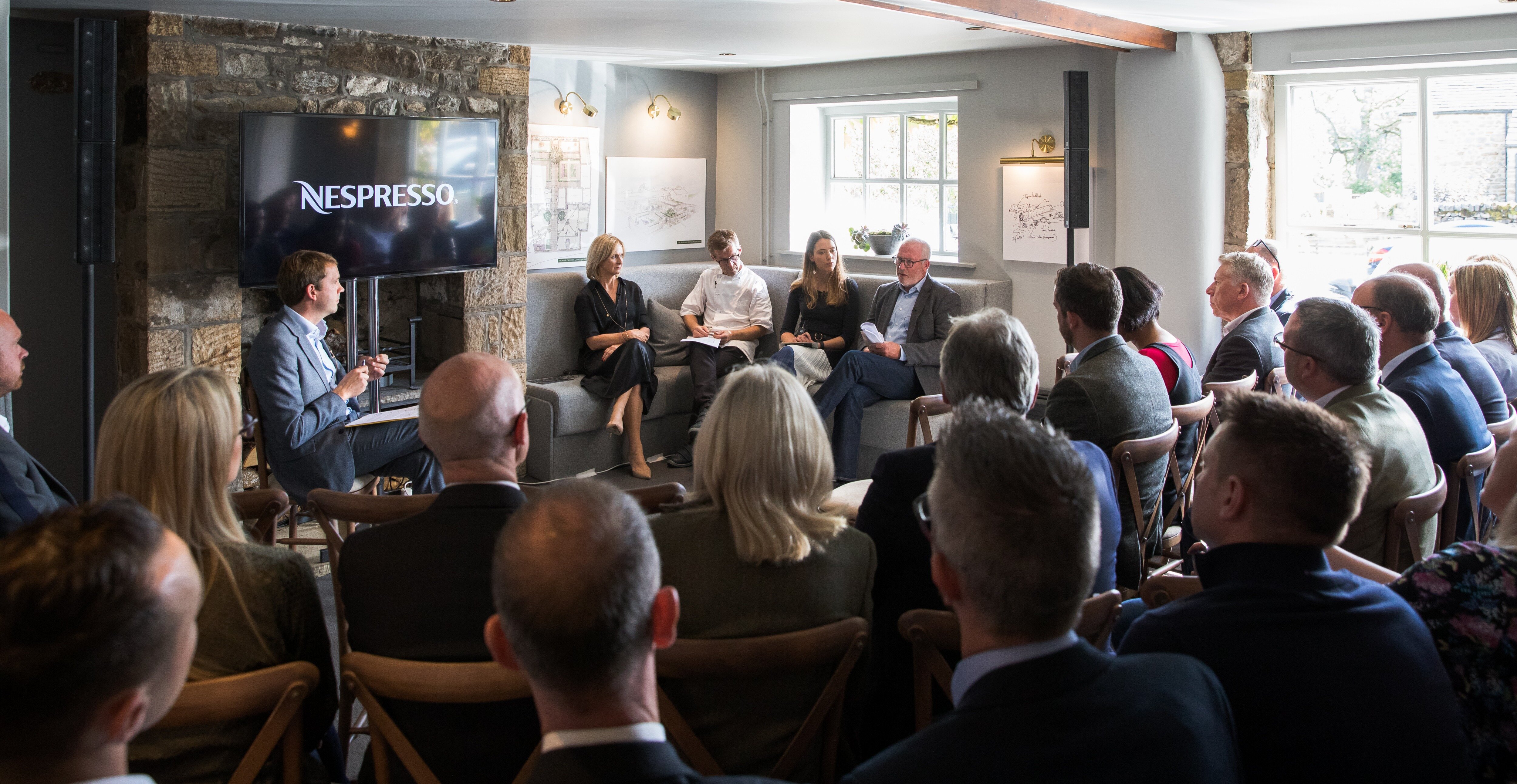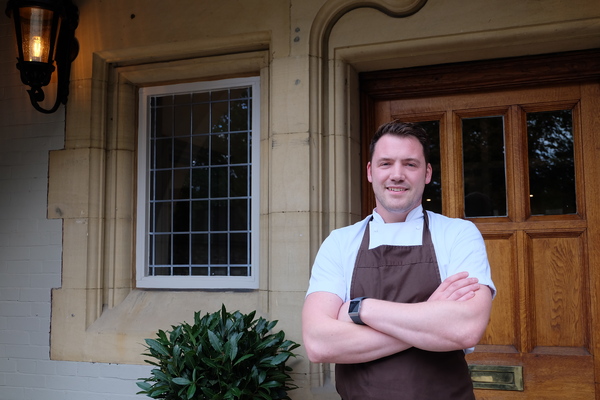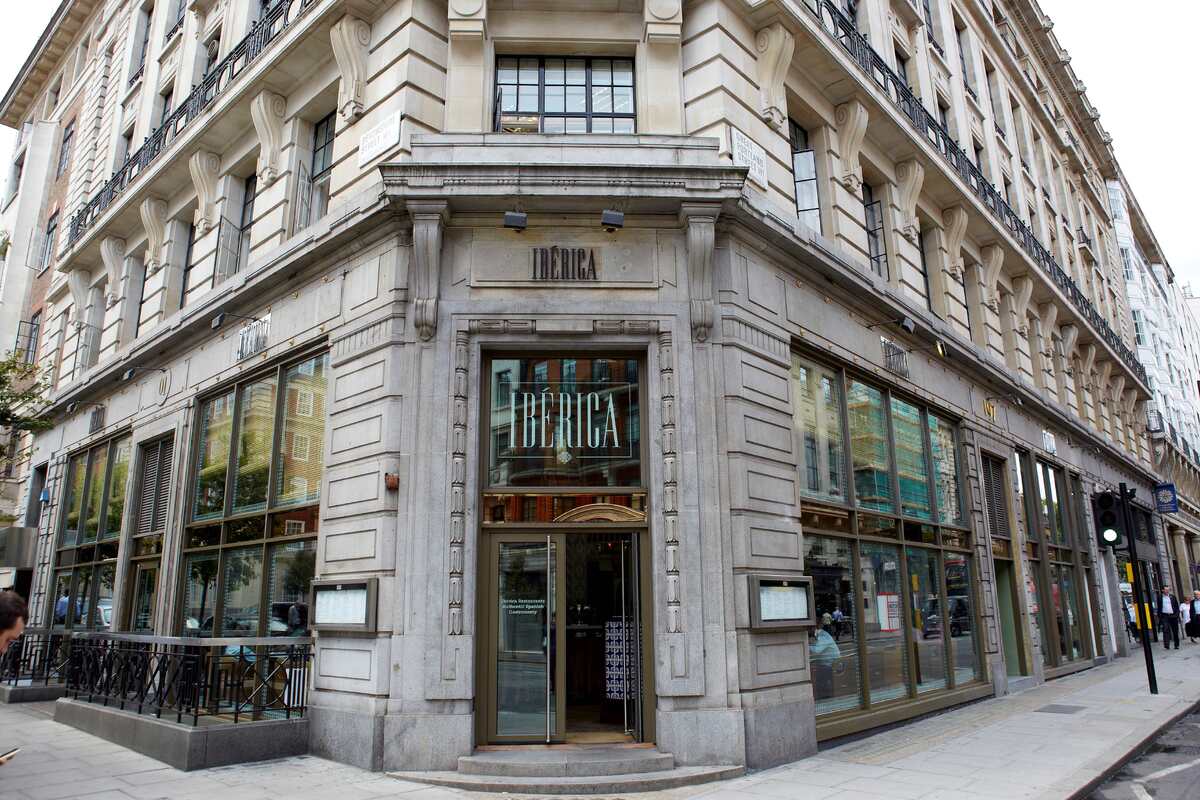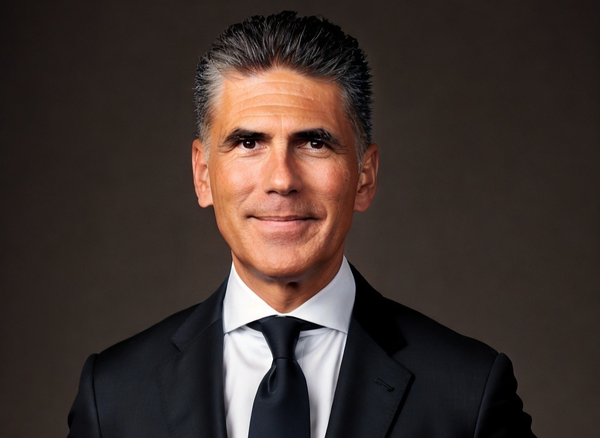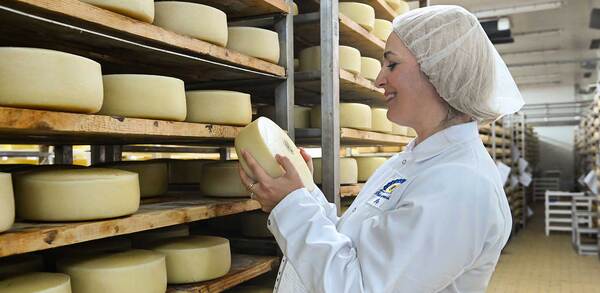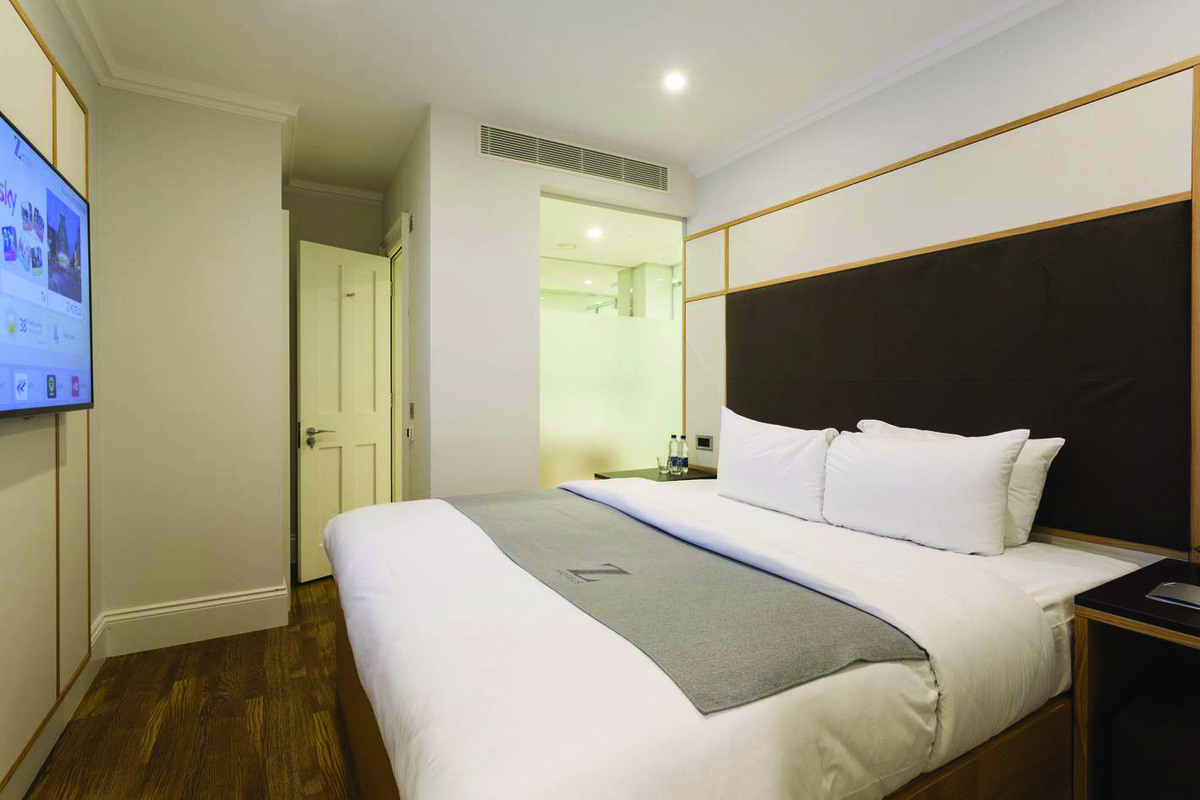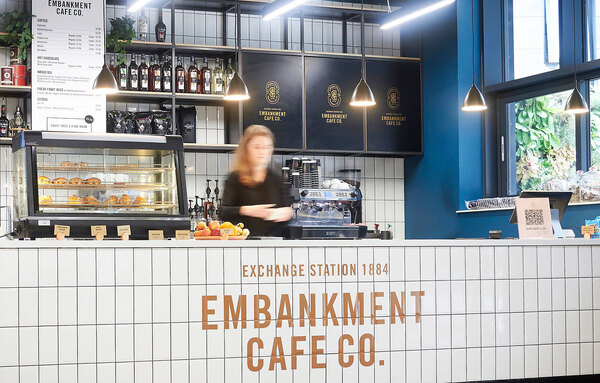Why a sustainable procurement policy has to be at the top of your to-do list
If you’ve put plans for your sustainable procurement policy at the bottom of your to-do list, think again. The Caterer and Nespresso Professional brought together the leaders of the north-west’s top hospitality businesses with a panel of experts at Michael Wignall’s the Angel at Hetton to discuss why it’s here to stay. Rosalind Mullen reports
There’s evidence that having a sustainable procurement policy is a deciding issue for an increasing number of your eco-conscious consumers. Clearly, forward-thinking operators are getting ahead of the pack, because last month 30 industry leaders from the sharpest hospitality businesses across the north-west converged on the Angel at Hetton in Skipton, North Yorkshire, to hear a discussion on the subject.
Paul Heathcote from Heathcote & Co, Adrian Ellis from the Lowry hotel in Manchester and Peter Banks of Rudding Park in Harrogate – to name a few – were out to glean expert insight into why and how it is crucial to create a sustainable business model that appeals to the eco-conscious consumer.
Nespresso Professional UK and The Caterer organised the discussion, which preceded lunch hosted by Michelin-starred chefpatron Michael Wignall, who took over the Angel last September with his wife, Johanna.
Taking the chair, The Caterer editor Chris Gamm kicked off proceedings by introducing the four panellists. He lined up his first question by directing the audience to CGA research, which found that 54% of consumers say sustainability of ingredients is a key factor when deciding where to eat, and 56% say they are swayed by the sourcing of ingredients.
“So what implications has consumer demand for sustainability had on the hospitality industry, and how does it differ across big and small groups?” he asked. Consultant Iain Donald explained that media attention has put a spotlight on the issue and that once the larger organisations have made a commitment to sustainability in their marketing, they can’t pull out. Citing his two years working with Accor on sustainability, he said: “Interestingly, the real challenge came not from the people at the top, but from procurement – they are battling against profit versus finding a commodity to fit the bill.”
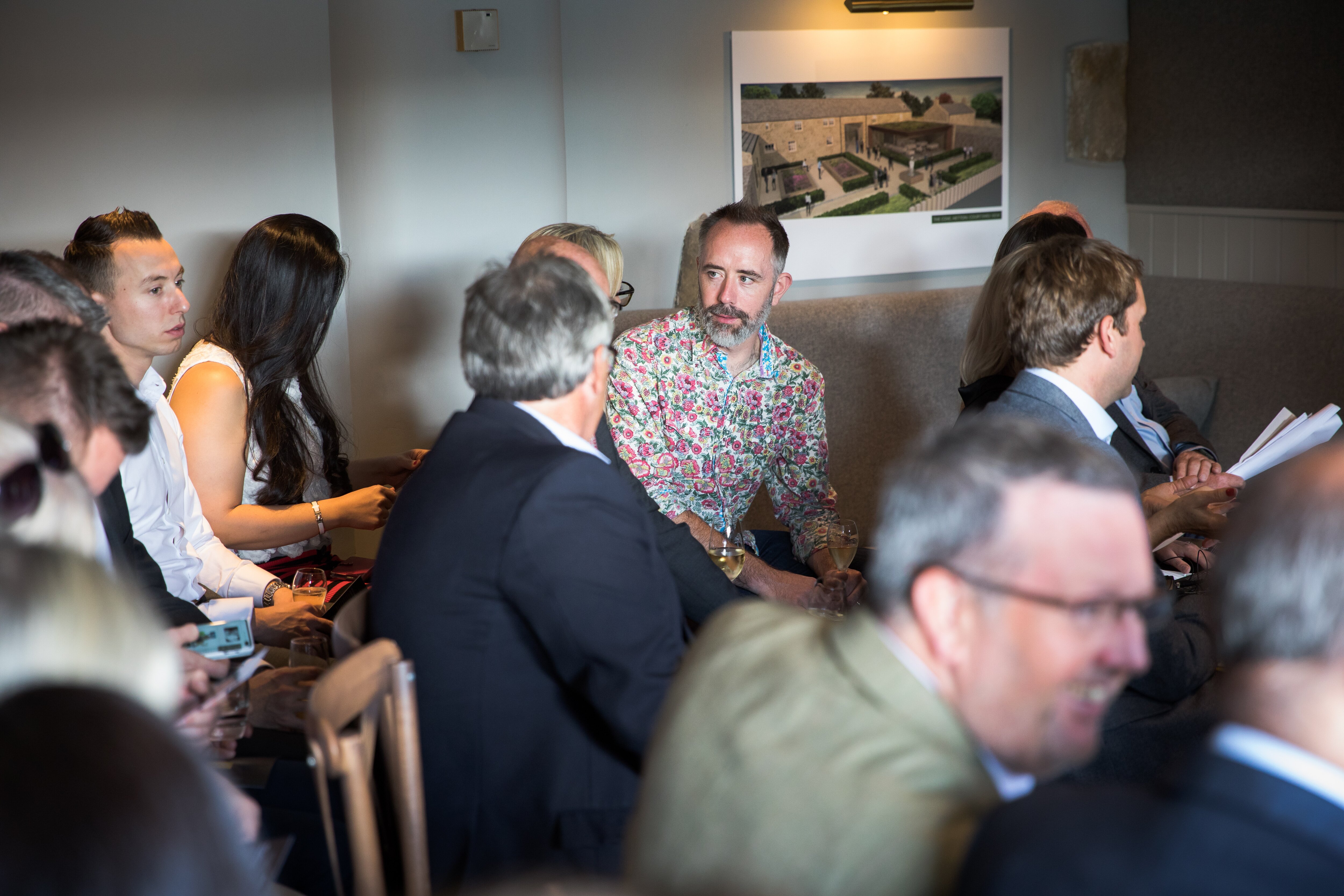
Smaller operators, on the other hand, often don’t have compelling information about sustainability and can be put off by the perceived added cost of extra equipment, he conceded, so, when investing, it is important to use companies with good data that show the long-term benefits.
“Also, with menu development you can make step-changes by slowly bringing in new products. Use strategic planning, if you can’t do it now,” he said.
Donald added: “Fundamentally, I believe the train has left the station and that consumer demand is a force to be recognised. Smarter companies, even in this commercially difficult period, have a strategy to be sustainable and demand more of their suppliers.”
Waste not
Certainly, help for small businesses is at hand. Katie Thomas spoke next, describing her role at the York, North Yorkshire and East Riding Local Enterprise Partnership (LEP): “Our main remit is economic development and growth by supporting businesses and investing in infrastructure and skills. My role [at York] is focused on the low carbon and circular economy agenda,” she said.
To reach the goal of a circular economy, Thomas said the LEP works directly with smaller businesses: “For some, it’s a case of how we can provide initial advice and signpost them to areas such as equipment or grant funding. For others, it might be they want help bringing an idea to market, so we give marketing advice. We also have a team that can do environmental audits.”
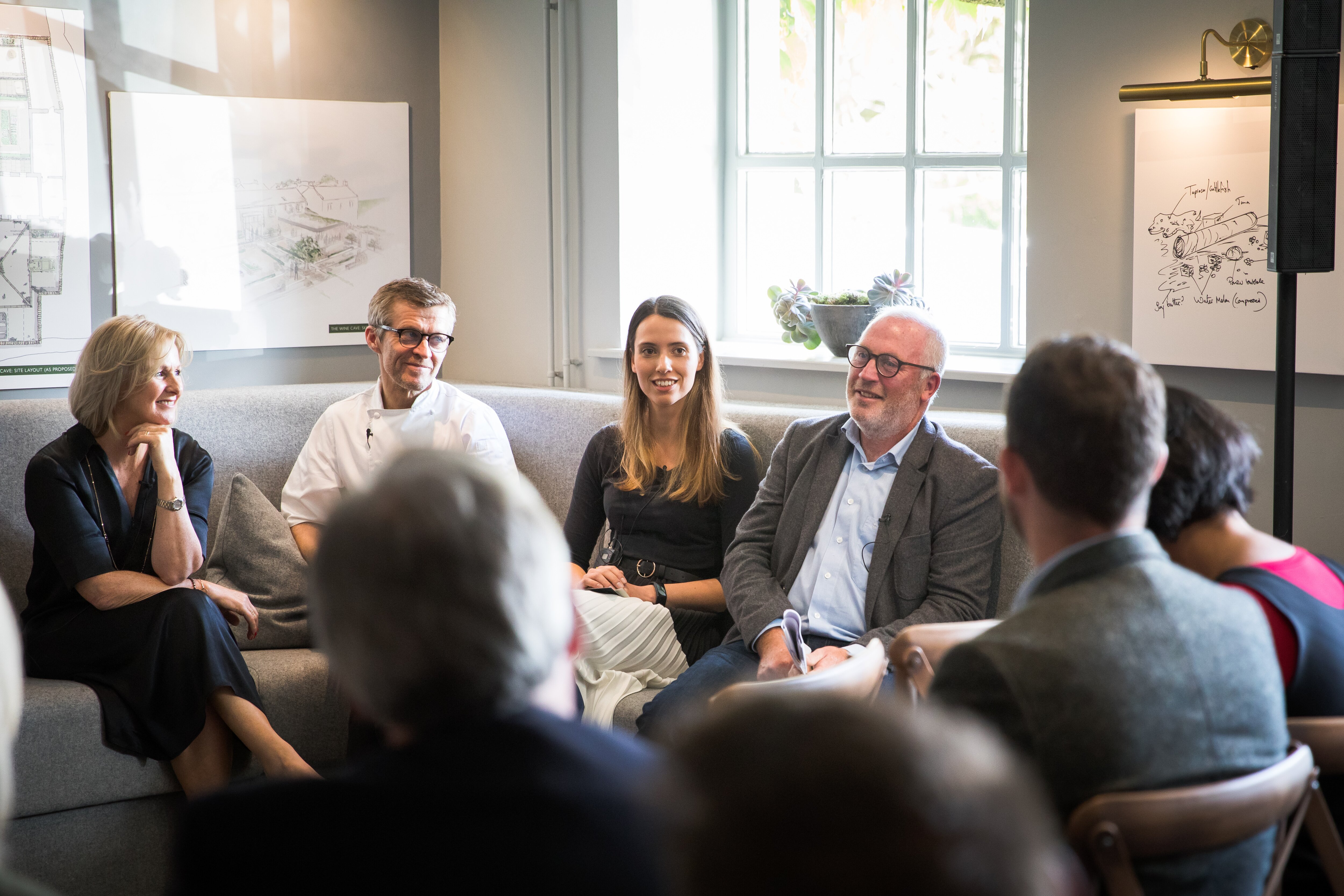
One problem she highlighted is that a lot of funding funnelled through the LEP comes from the EU and criteria issues mean many businesses can’t apply for it. “We can do a certain amount of signposting, but not a massive amount of financial support – potentially we can provide more support for the hospitality industry post-Brexit,” she said.
Of course, while businesses have a role to play in embracing a sustainable supply chain, Gamm parried that they also need the support of local authorities in being able to recycle biodegradable packaging and food waste.
Thomas concurred, adding that her LEP covers “a messy landscape” of some nine councils, all with different recycling practices. Some, such as East Riding Council, have good recycling policies, while others lag behind. But her message was that truly committed businesses could find a way, and that in the space where councils are not doing enough, small businesses and entrepreneurs have been trying to fill the gap. She singled out an entrepreneur in York who is working with local cafés and restaurants to extract economic value from segregated food waste, such as coffee grounds and avocado skins.
Working with local authorities is top of the agenda for Julie Gallacher of Nespresso UK, too. The company has invested heavily in sustainability, underlined by initiatives such as the AAA Sustainable Quality™ Program, developed with the Rainforest Alliance and launched in 2003, and the Positive Cup commitments, announced in 2014, that aim to make Nespresso carbon-neutral by 2020. Gamm wanted to know how the choice of aluminium coffee capsules supported their green credentials.
Gallacher responded: “We are often challenged about that, but we chose aluminium for two reasons: it is the best material we have found so far to protect the freshness of coffee, and it is also recyclable. Once it is in the system you can reuse it again and again.”
She explained that the pods are collected through the Nespresso recycling scheme and are then smelted down and reused, typically to make drinks cans. The coffee grounds are reused, too, mainly as biogas and soil improver for landscaping at large industrial sites. Sheadded that innovative start-ups and small businesses were already looking at the opportunities to extract the oils from coffee grounds, even talking about using it as an alternative to palm oil.
In the UK, the Nespresso recycling scheme has the capacity to recycle 100% of its capsules, but participation rates among consumers are just 29%. To improve this, the company has conducted a pilot with local authorities, where the best solution is for the pods to be collected with regular recycling. Gallacher said the company has carried out trials, but it is reliant on the council having a good recycling scheme and on consumers being able to correctly sort their waste.
Unlocking kerbside will take a long time; however, in the meantime, consumers can continue to recycle via the Nespresso dedicated recycling scheme where they can drop off used capsules at any Nespresso boutique, at more than 7,000 CollectPlus outlets or by organising a collection from their home.
Delivery dilemma
Gamm then asked Wignall whether sustainability has played a key role since he took over the nine-bedroom gastropub. “Massively,” he responded. “As a chef you have a responsibility about what you serve – not just how you source the ingredients, but how they get to you. Some 80% of our ingredients are local and we only use a few suppliers, not the 20 like I used to use five years ago. So, we get, say, two deliveries a day, five days a week.”
He was also open to the suggestion from the audience that he could work with other chefs in the area to streamline deliveries. “There is no reason why we can’t do something together. We could use a delivery hub to cut down journeys. Some suppliers already re-route journeys so they cover fewer miles,” he said.
Here, Gamm chipped in with more statistics from CGA: “Some 48% of consumers feel that it is very or extremely important that the venues they visit source environmentally friendly packaging, so how have you embedded this into the fundamentals of your business?” he asked Wignall.
“We look at what suppliers are packaging their produce in and make sure they take it away. We recycle bottles and cardboard, so we are doing what we can,” he responded. Pressed later by a member of the audience, Wignall clarified that he checks that the suppliers then recycle the packaging. “For instance, our butcher recycles 25 tonnes of cardboard a year,” he said.
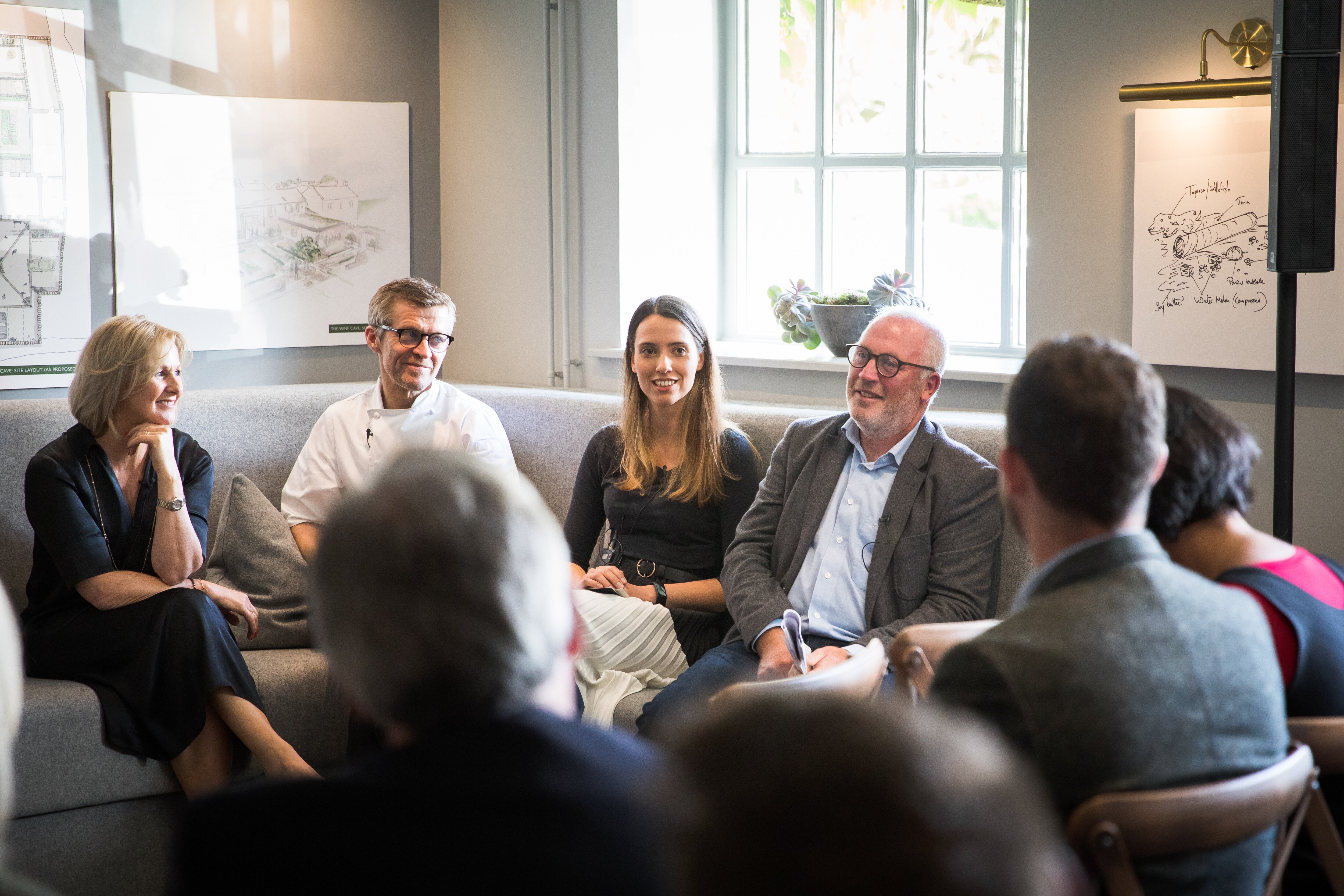
On sustainable procurement, Wignall sources sustainable fish, such as line-caught mackerel, and checks fish is from a day boat. “We have got a few organic biodynamic wines and we serve Dark Horse Brewery beers – one beer is completely carbon neutral,” he added. “But there is always something else to do. As a chef, there is no time to look at everything.”
He added: “If they are a new supplier, I always visit – whether it’s a farm or fishery here or abroad. If they are open and transparent they should expect you to go there and show you what they are doing.”
The Angel also uses renewable biofuels to heat water, and Wignall plans to change from liquefied petroleum gas, “which is dirty”, to induction, which is more energy efficient and will save the business at least £12,000 a year. While Wignall is clearly passionate and engaged about sustainability, the burning question was whether he felt that was reflected across the restaurant industry as a whole.
“Probably not,” he said. “People turn a blind eye. Everyone is looking at costs and we pay a fortune for staff, which we wouldn’t have entertained 15 years ago. Everyone is looking to the bottom line. But if the customer wants [sustainability] you need to be able to back it up, otherwise it looks bad on you.”
Gamm then turned to ask to Gallacher about the Positive Cup 2020 and the work Nespresso does with farmers, offsetting the carbon footprint with non-governmental organisations.
Gallacher told delegates that the company’s AAA Program enables it to work directly with 100,000 smallholder farmers across 13 countries to train them in sustainable farming practices and ensure the coffee produced is of a high quality to support the business model.
“These practices help to increase yields and get the consistency our customers want. We invest in that and in the communities and surrounding landscapes – in Colombia, for example, we introduced pension plans and conditions to make it more attractive for younger people,” she said.
She continued: “Our 2020 goal is 100% sustainably sourced coffee through the AAA Program. We are now at 94%, so we will hit the target by the end of 2020. Of that amount, 56% is dual-standard, so they carry the Rainforest Alliance or Fairtrade marque, which allows farmers to sell to others, not just to us.”
The second goal of Nespresso is to reach 100% sustainably managed aluminium globally by building more recycling systems outside the UK. At the moment, 92% of Nespresso consumers across the world have access to recycling systems.
The company’s third goal focuses on carbon neutrality. “A lot of the carbon footprint is in the country of origin, so we do a lot of work there,” said Gallacher. “But at a local level it is about, for instance, putting in smart meters at our boutique outlets and educating staff – you can immediately see the impact if a member of staff forgets to switch a light off.”
Unfortunately, not all suppliers are as transparent, and there are cases of companies mislabelling packaging as being recyclable.
With her advisory role to the hospitality industry, Thomas was the best person to share advice on how best to research traceability.
“One solution is to source locally and to have a chat with suppliers,” she said. “A priority for us is to localise the food supply chain because with the impact of Brexit, all our farmers will lose subsidies. Some 70% of their income comes from subsidies, so they need us to support them.”
“Another route is standards – though there are so many standards out there beyond the usual Fairtrade and Rainforest Alliance that it can be time-consuming to research them.”
She suggested delegates could also get ideas from other industries, particularly the fashion industry. Patagonia, for instance, allows consumers to trace a garment’s origins on its website.
Traceable and transparent
On the subject of authenticity, Donald warned that words such as “artisan”, “compostable”, and “local” are often just buzzwords for companies seeking a marketing opportunity. “It is abused, but the consumer is getting wiser to it,” he said.
Thomas said businesses can get help from their LEP in understanding sustainable procurement and product trails. “We try not to overwhelm businesses,” she explained. “We need change to meet carbon-neutrality targets, but there is no point overwhelming them with 100 things that they need to do. It is best to suggest manageable things to implement in a few months and then set longer-term goals.”
Indeed, some councils are not yet equipped to take on the amount of food waste that businesses dispose of, even if they do so with the aim of it being composted. According to the Waste and Resources Action Programme (WRAP), of the 10 million tonnes of food waste arising annually in the UK, only 1.8 million tonnes is recycled, either by composting or anaerobic digestion.
Gallacher, however, had strong views on the way forward: “[It’s] about driving education and collaborating, because you often can’t address these issues on your own,” she said.
“There needs to be a win-win for climate and the business. For me, it’s about how we drive our employees – colleagues who don’t switch fans off overnight and so on. It is good to put pressure on businesses to wake up to sustainability requirements and the basics that need to get sorted.”
Rounding off before lunch, Gamm asked Donald the million-dollar question: “What is the future of sustainable procurement?”
He was succinct: “I think a gradual process in terms of what is happening at the moment. In the past two or three years the consumer and media have played a significant part and the future is continuing that message. There needs to be more participation from the industry – the statistics are there to prove it is being driven by the consumer. It is a journey; it has started.”
The panel
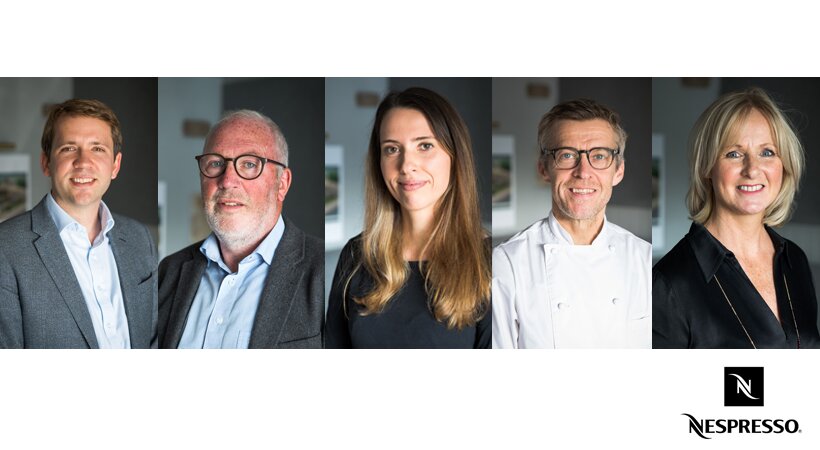
Chair: Chris Gamm, editor, The Caterer
Iain Donald, a restaurant and hotel consultant working with some of the UK’s biggest brands in the north west. He is also The Caterer’s former Restaurateur of the Year – Group Catey winner from his time running the Individual Restaurant Company
Katie Thomas, low-carbon and circular economy lead for the York, North Yorkshire and East Riding Local Enterprise Partnership. She leads circular economy expertise from farming through to food production, processing of byproducts and waste
Michael Wignall, chefpatron at the Angel at Hetton, has held two Michelin stars at both the Latymer restaurant at Pennyhill Park and Gidleigh Park in Devon
Julie Gallacher, the sustainability and corporate communications lead at Nespresso UK, is the driving force behind Nespresso UK’s leadership within the sustainability space, from sourcing through to recycling of packaging following product use
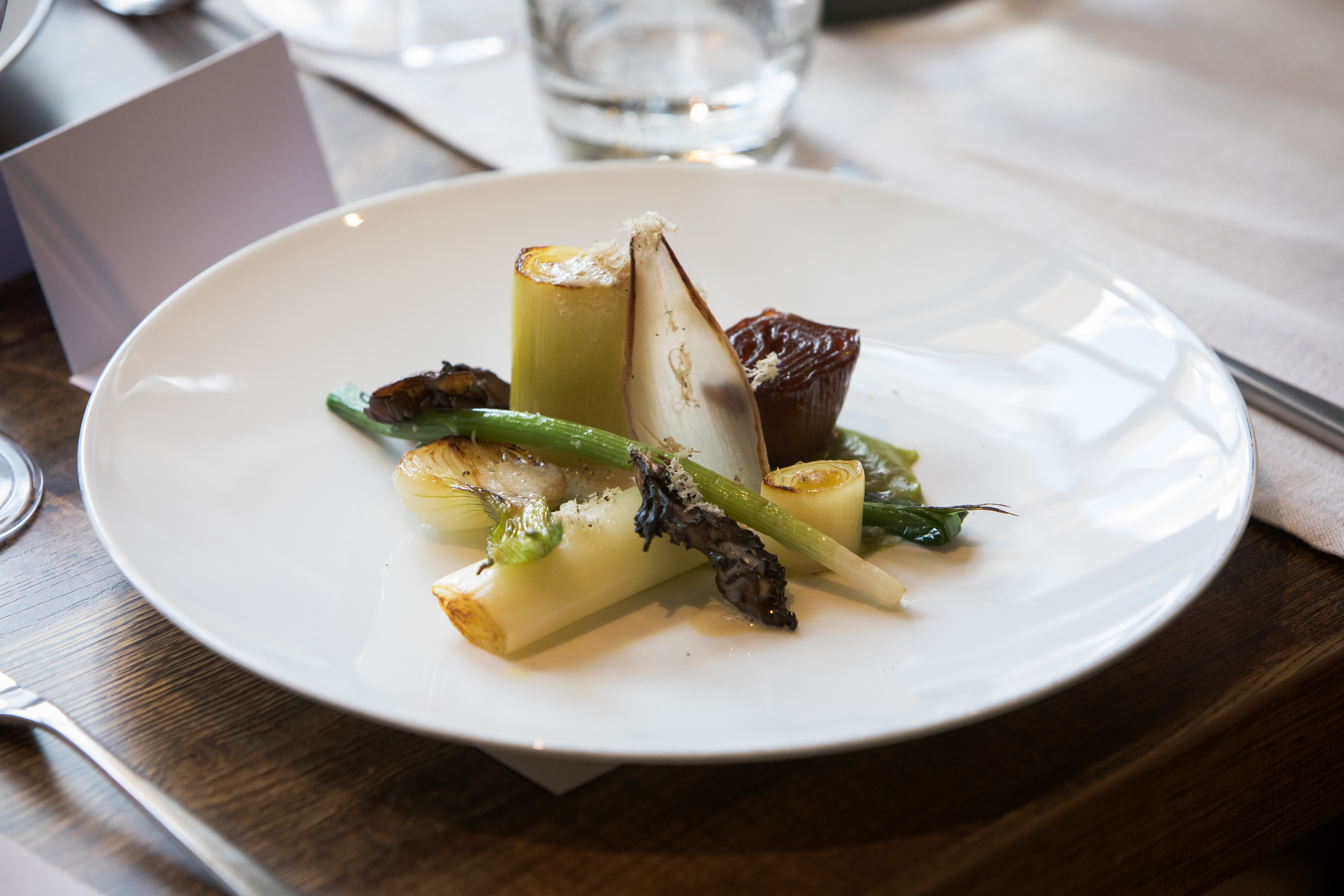
Michael Wignall’s menu
- Eel Smoked eel, white chocolate, aero, caviar and apple
- Tomato Isle of Wight tomato, essence, lovage
- Ox and Meadow Keens Cheddar, radish, garden pea, braised and smoked ox tongue
- Turbot Steamed North Sea turbot, teriyaki shiitake, charred lettuce
- Squab Aged squab, celeriac, nasturtium, fermented Yorkshire garlic
- Coffee Ginger, Nespresso Kenya Milima, butternut squash, Grué de cacao



